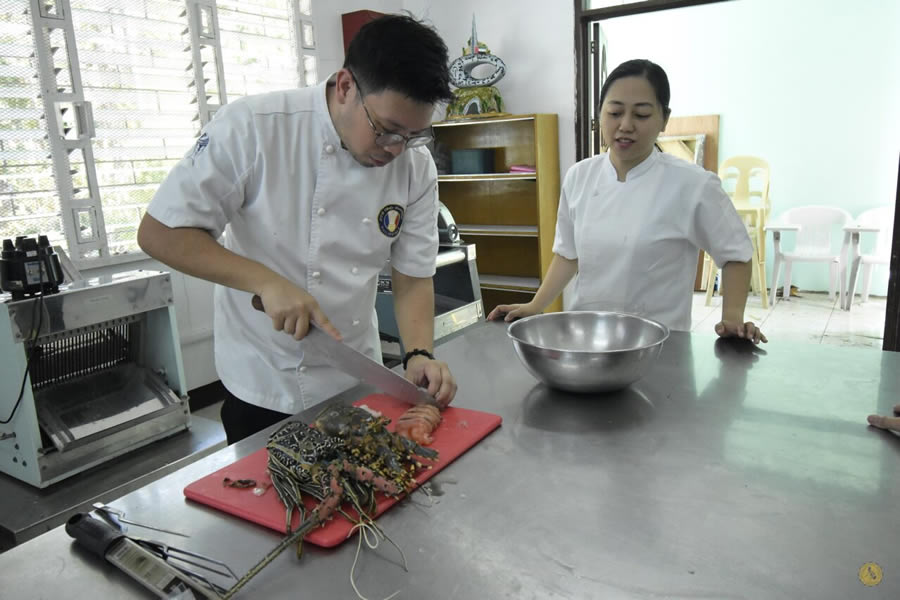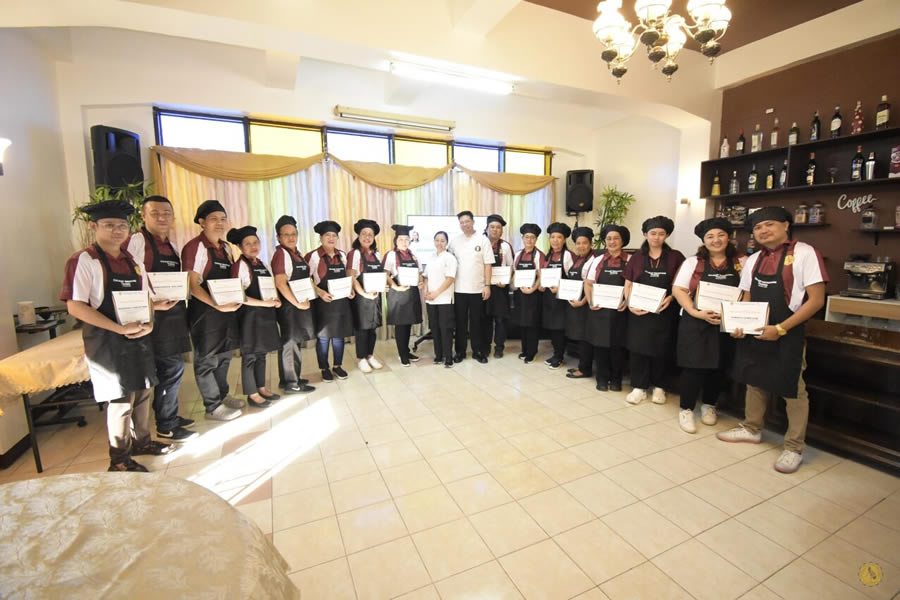By Judah-El Bañas
Chef Dave demonstrating some modern culinary techniques to the participants of the Culinary Innovations Training.
The College of Hospitality Management (CHM) recently held a two-day Culinary Innovations Training at their Culinary Lab on March 25–26, 2024. The goal of the event, led by Chef Daryl Vance “Dale” Yulo Sy, Executive Sous Chef, and Chef Honey Faye Kamil Corpuz Irada, Chef de Partie from The Westin Manila, was to provide CHM faculty with advanced culinary techniques and trends, encouraging innovation in their teaching and promoting industry relevance.
The training covered four major topics: plant-based cuisine, molecular gastronomy, sous vide technology, and seafood mastery. Faculty members learned and practiced new culinary concepts through a combination of discussions, demonstrations, and hands-on experience.
On day one of the training, the CHM faculty actively participated in learning about dairy-free alternatives and reducing food waste, such as using vegetable and fruit peels in plant-based cuisine and experimenting with plant-based meat alternatives. Additionally, faculty members were given the opportunity to return to the demonstration by preparing their own plant-based course.
CHM faculty together with Chef Faye and Chef Dale during the Culinary Innovations Training at CHM’s Culinary Lab.
The next day, in the Molecular Gastronomy session led by Chef Dave, they looked at the science behind modern culinary techniques, including experimenting with new ingredients and textures to create visually appealing and flavorful dishes. The Sous Vide Technology segment, led by both guest chefs, taught the faculty about precision cooking methods and vacuum sealing for flavor preservation, allowing them to infuse flavors while maintaining consistency in their culinary creations. Lastly, Seafood Mastery sessions focused on responsible sourcing, safe handling, and expert preparation of various seafood dishes, giving the faculty confidence in using diverse seafood ingredients to elevate dishes with finesse.
Overall, the training equipped CHM faculty with practical skills and knowledge to integrate culinary innovations into their teaching. By staying updated with industry standards and trends, they are better prepared to train students for successful careers in the dynamic hospitality sector.


